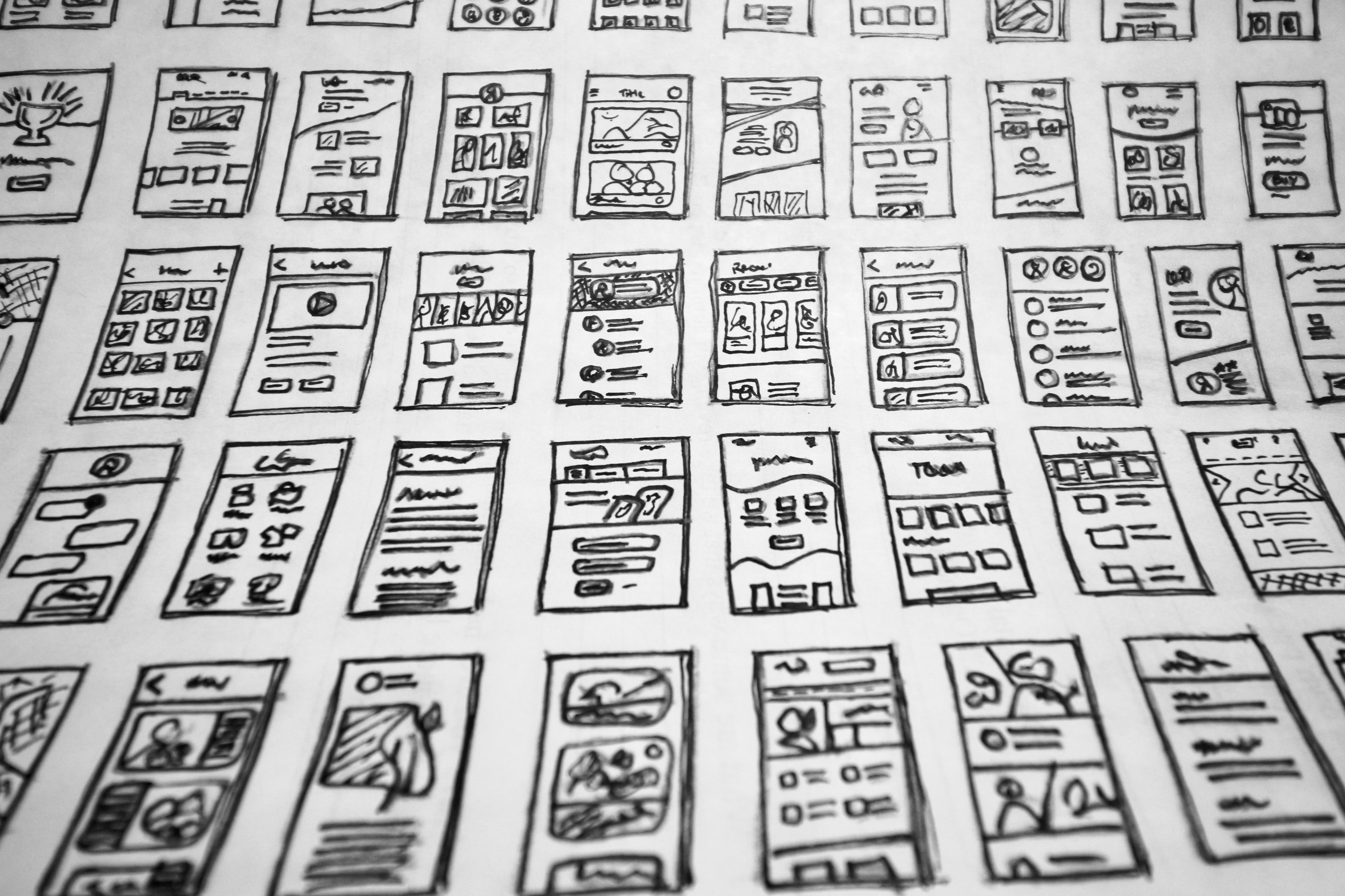Web Developer vs. Web Designer: What’s the Difference?
It’s easy to get confused between what a web developer is and what a web designer is. After all, they both work on websites, and nowadays, the two...

You had a dream, did the research, planned the project… now all that is remaining is hiring a developer to code life into your project. Your only question is, what to ask? Never fear, we’ve compiled a list of the best web developer interview questions. We’ve kept them broad enough to be cross-functionally used for software developer interviews, as well.
We’ll break it down into two categories to help you structure your interview questions in a natural flow.
The classic interview opener! Time tested and still effective. This is a great opportunity to hear an overview of the developer’s previous projects. You can suss out if their expertise and knowledge align with your needs. It also offers a baseline for you to ask more specific questions to determine the relevancy of their skillset.
What to look for in an answer: A web developer who can bring something new to your team or confidently execute your freelance project. Though their resume need not match 100% of the job’s needs, as diversity brings creative new input, the developer should have solid foundational knowledge.
If someone says they are motivated by solving backend design problems and you’re in the market for a frontend developer, then it might not be the best match. The world of coding is vast with many niches. You’ll find it easiest to galvanize a developer on a project that aligns with their interests and skills.
What to look for in an answer: Find someone who will enjoy the challenge presented by your project. If you are hiring for a freelance app developer, look for someone who is already operating that space and seeks out new opportunities to grow their skills.
This software developer question is great if you’re hiring for a permanent position, less applicable if it’s for a freelance project. When it’s relevant, popping this into a web developer’s interview is a great method to understanding what the candidate is hoping to find in their next role, by inquiring what was missing in their previous one. Discovering what they need and if it’s something you can offer can make the process feel more cohesive and bring both the developer and hiring manager’s objectives in synthesis.
What to look for in an answer: There are many great answers to this developer interview question, like looking for different projects to expand a skillset. The main thing here is to make sure the goals of both parties have some overlap. For example, the web developer might express in their interview they’re looking to take on more project management. This would be convenient information if the role you’re hiring for involves some scheduling supervision.
Lions and tigers and deadline changes, oh my! What happens when a project hits a hurdle or a lot of features are being added last minute? A key challenge to software development is remaining calm when issues and problems arise.
What to look for in an answer: Look for an answer that showcases collaboration and problem-solving skills. You’ll need someone willing to critically think under pressure, without adding stress and blame to the environment.

Disagreements at work are bound to occur. When they happen, do you want to work with someone who refuses to bend their opinion? What about the opposite and have a team member who folds like a lawn chair under pressure? Or even someone who is always operating on reality tv level drama? The ability to work well on a team eclipses skill level in importance. Asking about a previous disagreement will provide insight into how a candidate will cooperate in the future.
What to look for in an answer: An ideal answer will display collaboration and cool-headedness. An emotionally intelligent employee will take ownership of their role in a conflict while displaying their compromising skills. Should a candidate heavily blame previous coworkers, you can get an idea of how they might be difficult to work with in the future.
Firstly, it’s just nice to let people showcase their talents! Everyone appreciates an opportunity to brag a little. Secondly, a project someone is proud to speak of will likely be either a challenging or sentimental one. Asking a web developer this question in an interview helps understand the extent of what they can accomplish and the challenges they’ve overcome to make it happen.
What to look for in an answer: Look for an answer that can break down why they found the project to be a triumph. Understanding the components that go into a successful software project is handy for repeating it.
This question can take many forms during software developer interviews. Other examples include, “what new development and engineering techniques excite you?” and, “what is an emerging trend in application and web development?” The answer is open-ended. You just want to see if your app developer is keeping up with the latest trends. It helps safeguard against soon-to-be-outdated tech going into your app.
What you’re looking for: There is no wrong answer… probably. If the candidate answers with Windows 95, that is a wrong answer. But chances are they’ll list something current, like Motion UI, cybersecurity, or development for wearable devices. The key here is that the developer demonstrates that they actively seek out new knowledge, can communicate how it will improve user experience, and articulate the challenges the new tech could bring.
We’ve all downloaded a new app, played around in it for a minute or two, then promptly deleted it from our phones. While the average user can justify this action by stating they simply “didn’t like it,” a keen developer should be able to articulate the underlying issues that caused this reaction and how to improve it. Identifying UI and UX dilemmas is imperative to improving them.
What you’re looking for: Someone who won’t just criticize a problem, but take it the extra step and offer a solution.
Everyone makes mistakes, that we know. However, not everyone can own up to their own mistakes and use them as learning moments. People who accept responsibility will create a more cohesive team.
What you’re looking for: A great answer to this software developer interview question demonstrates that the developer doesn’t simply cast blame on the next person. The smartest leaders admit they make mistakes all the time. A developer who then doubles down to fix the bug they accidentally created is a lot easier to work with than their foil.

“A Bug’s Life” is not only a great Pixar movie but the unofficial title for a software developer’s to-do list. Inherently, things get wonky when coding. Part of the job is being able to figure out what, why, and how to fix it, sometimes on tight deadlines. It’s important to see how a developer reacts to these unavoidable situations
What you’re looking for: A process that is proactive instead of reactive. The developer should have an answer about what error detecting software they’re familiar with and how they assure quality in the code they write.
Speed is an important factor these days. Load times can make or break software. Asking a technical question around a common concern such as this will provide a window into the skills and forethought of the software developer being interviewed.
What you’re looking for: To name a few options, answers could be minimizing CSS, using adaptive images, and running a compression audit. The list goes on, but the purpose is to allow the developer to showcase their expertise.
Gone are the days when a sticky note was all you needed. Building new software can get complicated fast. Proper organization throughout a project can help minimize avoidable errors.
What you’re looking for: There are numerous management systems available, such as JIRA, Redmine, and Basecamp. It’s important that a developer is familiar with project management tools in general and uses them to ensure nothing essential falls through the cracks. Especially as they might be required to communicate directly with the client through these systems, you’ll want to make sure they’re timely and organized.
This is a common interview question for developers. Engineers are expected to know multiple coding languages and sometimes be required to learn a new one quickly. The platform the software is being developed for will determine the necessary language the developer will work in.
What you’re looking for: You can decide if you need a developer that prefers object-oriented languages or functional ones. Common languages that are sought after are Python, React, C++, and Java. Depending on if you need a niche specialty of a full stack developer can affect the range of languages required. The answer to this software or web developer interview question is dependent on the scope of the project.
You could have a project that is iOS only, Android only, a responsive web app, a product that crosses platforms… the list goes on. With so many options, it’s very important to know which levels to pull when developing for various systems
What you’re looking for: Overarching answers should revolve around writing code in the platform-specific language, knowing responsive design rules, the UX and UI differences between platforms, and best practices with cross-platform development kits such as Flutter. Of course, with so many answers available, a software developer could answer this question with points other than these named.
A terrible place to live is in ‘underestimated and over-promised land.’ Judging how long it takes to complete a development project isn’t a skill easily won. However, having an accurate assessment of the time it takes to write, test, and repair is crucial for keeping a project on schedule.
What you’re looking for: A software developer could answer this interview question by listing off aspects of previous projects and the number of hours it took to develop them. It’s important to have a developer that doesn’t consistently miscalculate the amount of time building various components requires, as it will certainly make sticking to a timeline difficult.
Many clients want the ability to scale their product to multiple platforms, despite building a first version specific to only one. Developers who know how to foresee the expansion of a product can begin its construction using single-source codebases, like Flutter, that offer native performance.
What you’re looking for: There are a handful of benefits, such as saving time to market, maintaining only one code base, and creating uniformity in design. Whatever the reasons are, the important aspect is discovering that the developer is keeping at the forefront of new best practices and driving innovation.
Before beginning any software or web developer interview, get clear on your top priorities. No two people need the same thing in a developer. Maybe one company is looking for a frontend developer to crank out code left and right. Perhaps if you’re hiring for a freelance project, you care less about the development time and put a higher value on clear communication skills. We suggest understanding what you need from your future developer, then choosing from these interview questions accordingly.
If hiring a developer is in your future, hopefully, you’ll find these software and web developer questions useful. If you didn’t love any interview questions, then we suggest throwing away the playbook and going avant-garde. Only ask questions from famous pop songs. Lead with Skynyrd’s “What’s Your Name?” Follow it in traditional Rihanna style by asking, “Where Have You Been?” And conclude the interview with a classic “Have You Ever Seen the Rain?” If your candidate makes it through that, at least you can guarantee they have a sense of humor.
Curious to learn more about how a web developer could help you with your software project idea? Get in touch.
You might also like:
Subscribe to our newsletter.

It’s easy to get confused between what a web developer is and what a web designer is. After all, they both work on websites, and nowadays, the two...

For an app or software product to be successful, users have to actually use it. How many times have you heard horror stories of companies building an...

You have a great idea for an app, but you need to find a partner to bring it to life and help you think through strategic decisions required for...